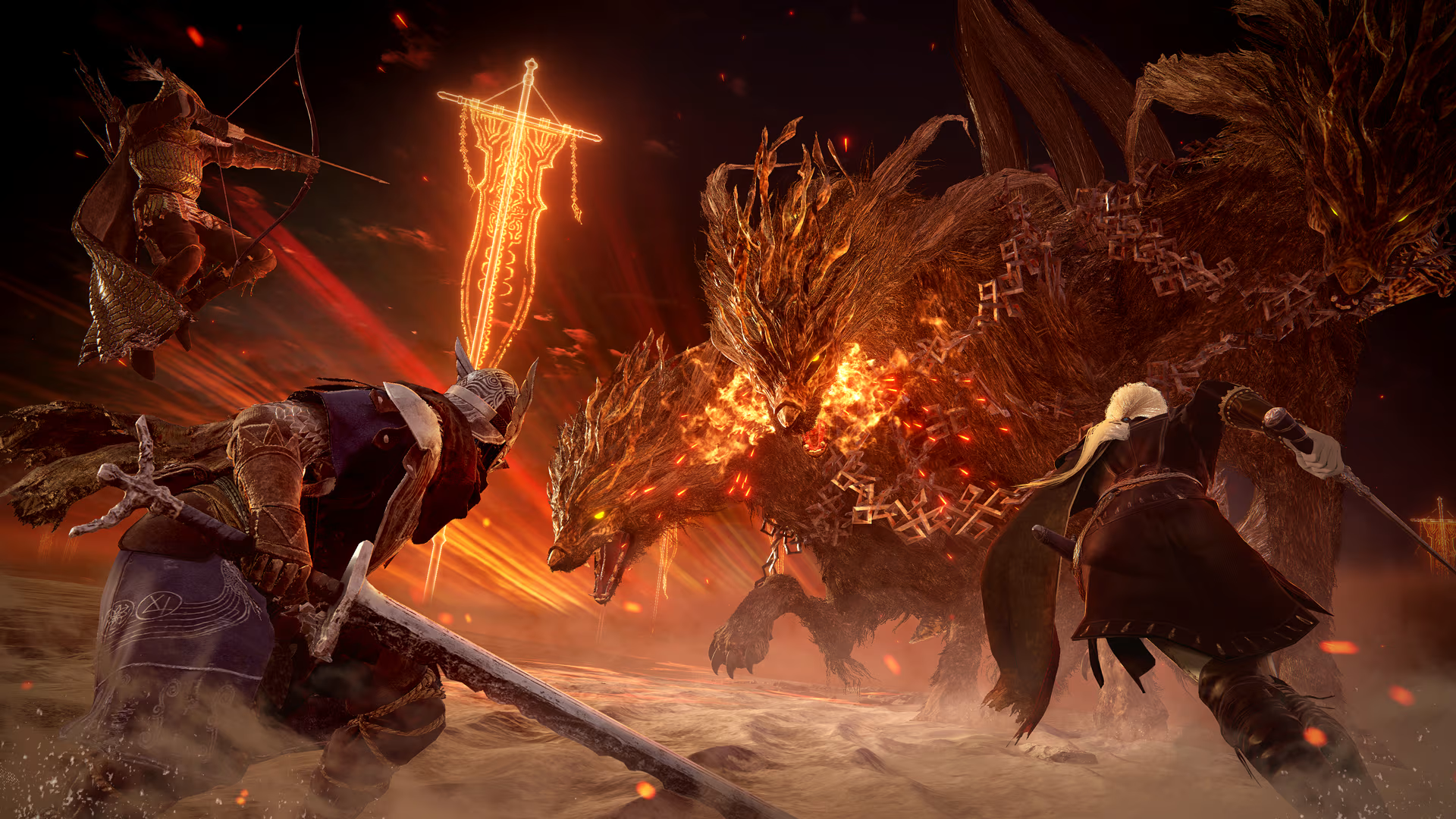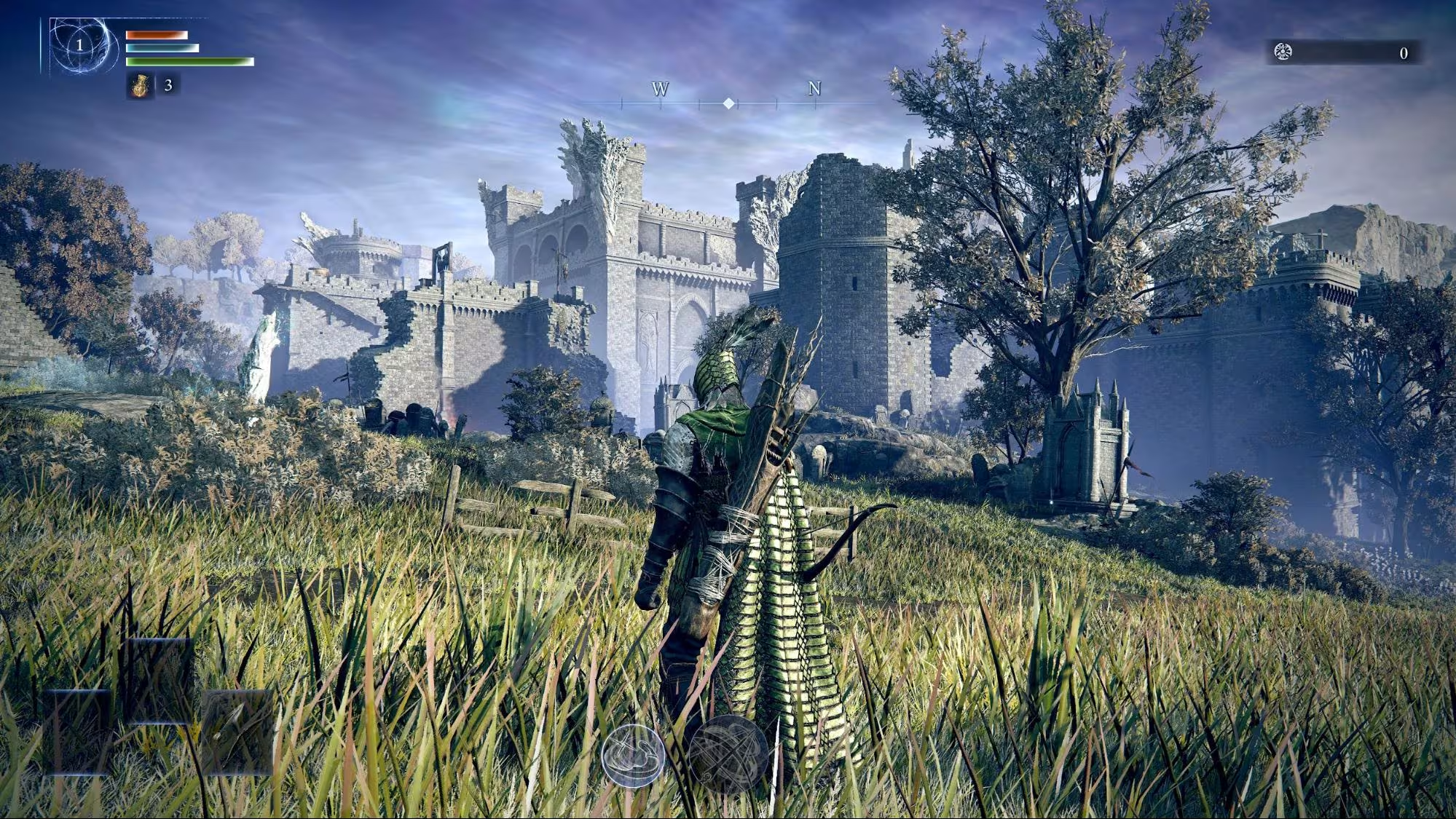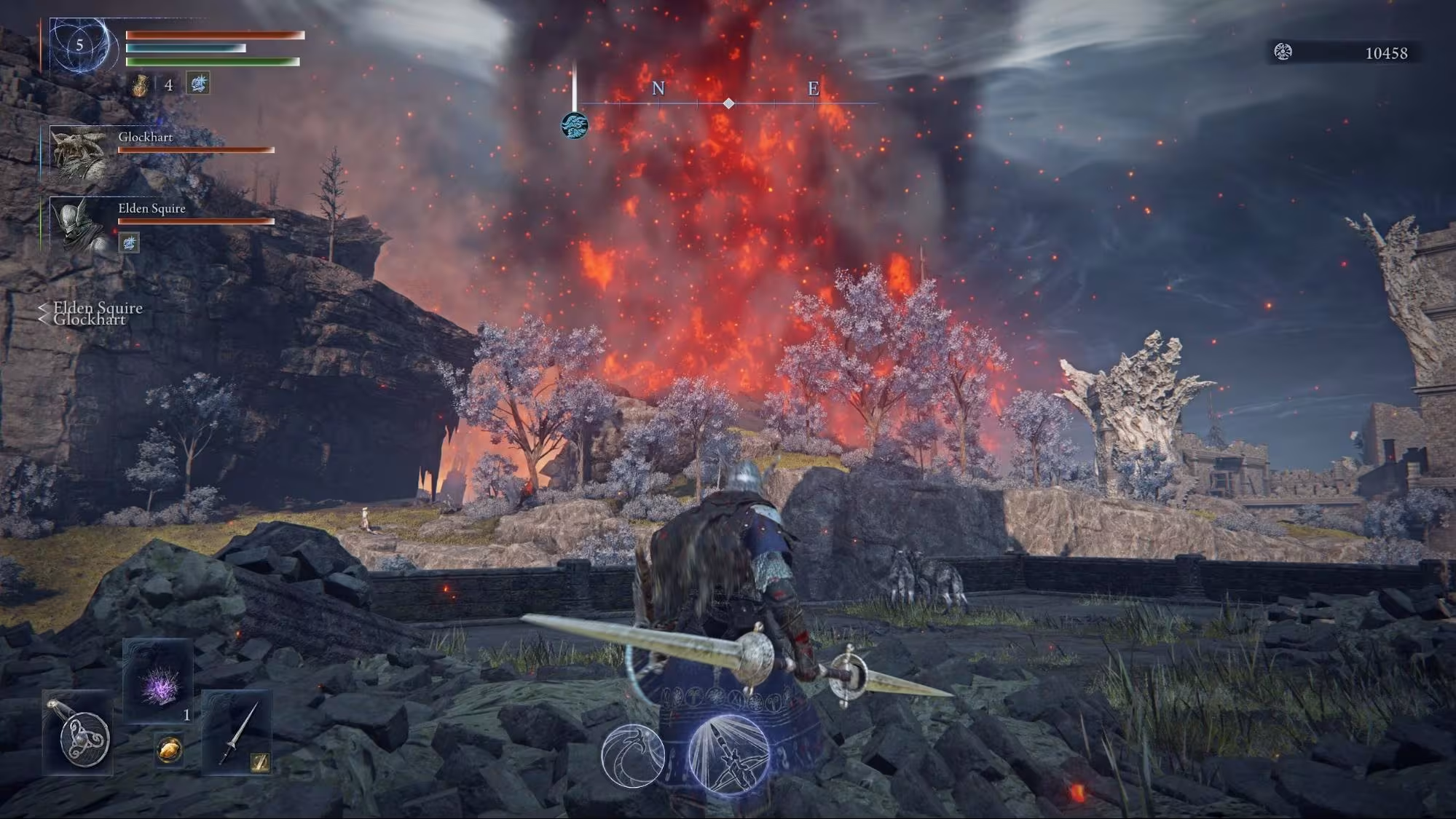PS5
PC
Xbox One
Xbox Series
Let's get this out of the way: Elden Ring is a modern masterpiece. Its sprawling world, The Lands Between, is a triumph of design, a place that feels ancient, sorrowful, and ripe for discovery. Most importantly, its challenges are made conquerable – and its loneliness bearable – by the brilliant spark of jolly cooperation. This system, refined since Dark Souls – the FromSoftware pièce de résistance – is, in my mind, one of the finest features in gaming of the last 15 years.
So when Elden Ring: Nightreign was announced, a trio-based competitive scramble set in this hallowed world, I was both intrigued and terrified. Could FromSoftware's sublime formula possibly work as a frantic, team-based battle royale?
The answer is a bold, brilliantly executed, and for me, a deeply conflicting yes. Nightreign is a masterfully crafted experience that succeeds at everything it sets out to do. Yet, for all its polish and thrilling design, I found its vision to be fundamentally at odds with the very things I cherish about its lineage. It takes the skin of a masterpiece and repurposes its heart to beat to a frantic, competitive, and ruthlessly efficient new rhythm.

All Dressed Up for a Different Party
Your journey in Nightreign begins with a familiar fall, as you and two other Tarnished are dropped into Limveld, a beautifully reimagined slice of The Lands Between. For a fleeting moment, it’s magical. Seeing the imposing silhouette of familiar castles or the haunting glow of a Minor Erdtree is a potent hook.
But it soon becomes clear this is a very different kind of party. Where these landmarks were once profound destinations for methodical exploration, here they serve as high-stakes hotspots in a fast-paced arena. The feeling of a shared adventure was quickly replaced by a desperate, high-energy hunt for loot as my two "partners" sprinted in opposite directions. This isn't a flaw; it's the design. This beautifully rendered world is a stunning stage for a gameplay loop that is admittedly closer to Fortnite than Dark Souls: land, loot, and fight to be the last team standing. It's exhilarating, just not in the way I'd hoped.
The RNG-esus Giveth, and Taketh Away
The core objective is to survive three in-game days and fight a Nightlord, and the path to victory is paved with scavenged gear. It’s here that Nightreign’s foundation reveals a fascinating and deeply divisive system. The deliberate progression of a Souls game is gone, replaced with a loot mechanic that creates a thrilling, volatile mix of cooperation and conflict.
The design is a smart hybrid: crucial boss drops are instanced, so every player gets their own reward, encouraging teamwork against major threats. However, most world loot is shared – first come, first served. In Elden Ring, finding a game-changing weapon was a personal triumph. In Nightreign, it’s a public spectacle that creates a palpable tension. The pace is too frantic to debate who gets what, and the incentive to hoard power is immense. For many, this risk-reward will be a thrilling gamble. For me, it often tipped into frustration, prioritising personal gain over the team dynamic I was craving.

Whatever Happened to Jolly Cooperation?
This brings me to my biggest personal hurdle. Nightreign is a radical departure from the "jolly cooperation" I've come to love. That system was about mentorship and shared success. This game, by design, champions competitive survival. It forces you into a fellowship, but its mechanics reward individual opportunism.
Initially, this "everyone for themselves" approach was confusing. It soon evolved into a profound sense of personal loneliness. I had anticipated tackling challenges in Limveld side-by-side, but instead often found myself adrift, trailing others and hoping to stumble into a fight. While I can see the appeal of this high-stakes, trust-no-one environment, I personally found it isolating and, at times, I resented it. When the multiplayer, a core element, felt so contrary to my desires, I struggled to fully appreciate the game's other clear strengths.

A New Kind of Dance
You’d think Elden Ring's legendary combat would crumble under the sheer chaos of Nightreign, but instead, it’s been masterfully reforged into something entirely new. All the foundational pieces of that precise, weighty combat system are present – the satisfying impact of a heavy strike, the crucial timing of a dodge roll, the strategic use of Ashes of War – but their purpose has been dramatically altered. The elegant duel, a lonely dance of learning an opponent's every move, is often replaced by a messy, glorious brawl. It's a fundamental shift from a reactive battle of attrition to a proactive explosion of coordinated violence, where the goal isn't just to survive an enemy's assault, but to obliterate them before they can fully execute it.
This new approach swaps the tactical, patient dance of combat for a frantic flurry of three Tarnished trying to synergise their most powerful abilities. Is it chaotic? Absolutely. But within that beautiful mess, an undeniable thrill and a new layer of strategy emerge. Success is no longer purely about individual mastery, but about team composition and split-second coordination. You learn to read not just the enemy, but your partners, capitalising on the moment one staggers a foe for the others to unleash hell. This strategic depth is deepened by enemies who now lean heavily on area-of-effect attacks, a clever design choice that forces your trio to constantly reposition, breaking up tight formations and demanding a new kind of spatial awareness.
Ultimately, it feels like a "TikTok Soulsborne" – faster, louder, and meticulously engineered for explosive, shareable moments rather than quiet, personal triumphs. For many, this evolution will be a welcome jolt of adrenaline, a fresh and exciting way to experience a familiar world. For me, however, a player who still romanticises the methodical ballet of the Ornstein & Smough fight, this new style just didn't quite click. I admire the skill it takes to thrive in this chaos, but I found myself longing for the quiet tension and deliberate pacing it so boldly leaves behind.
Verdict
Elden Ring: Nightreign is not the game I wanted it to be, but it is an expertly crafted and polished experience. It takes a sacred world and bravely transforms it into a tense, competitive arena that will undoubtedly be a hit with players seeking a high-octane challenge. Its systems are smart, the gameplay loop is addictive, and it's a beautiful, technically sound package.
While I personally missed the quiet solemnity and true cooperation of the original, I cannot deny the brilliance of Nightreign's execution. If you’re looking for a ruthless, fast-paced survival game set in one of gaming's greatest worlds, this is an absolute must-play. If, like me, you're a disciple of jolly cooperation, be prepared for a very different kind of pilgrimage.
You can subscribe to Jump Chat Roll on your favourite podcast players including:
Let us know in the comments if you enjoyed this podcast, and if there are any topics you'd like to hear us tackle in future episodes!



